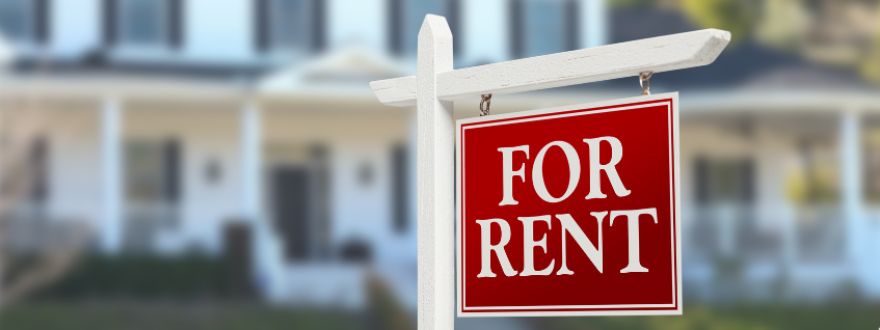
Florida is a prime location for rental property investment, with high demand from both seasonal visitors and long-term tenants. Whether you own a single-family home in Miami or Tampa or a beachside duplex in Fort Lauderdale, your property is not just a home—it’s a business asset. Protecting that asset with the right rental property insurance is crucial to long-term profitability and peace of mind.
In this guide, we’ll break down:
-
Key coverage options for rental properties
-
Common insurance mistakes Florida property owners make
-
Tips for maximizing protection through tailored policies
Insights in this article are informed by Florida-based insurance specialists, including experience from agencies like American US Insurance, who assist landlords in finding smart, customized coverage for every property type.
What Is Rental Property Insurance?
Rental property insurance—also called landlord insurance—covers property owners who rent out their homes, condos, or multi-unit buildings. It’s different from homeowners insurance, which is designed for owner-occupied residences.
In Florida, with its high humidity, hurricane risk, and active rental market, rental property insurance is essential.
Key Coverage Options for Rental Properties in Florida
1. Dwelling Coverage
This is the core of any landlord policy. It covers the physical structure of your rental property against risks like:
-
Fire and smoke damage
-
Storms and wind (including hurricane-related damage, common in Florida)
-
Vandalism and theft
-
Water damage (not including floods—more on that below)
2. Liability Protection
If a tenant or guest is injured on your property, you could be held liable. Liability coverage helps cover legal fees, medical expenses, and settlements.
Example: A tenant trips on a loose railing and sues. Liability insurance helps protect your investment and your personal finances.
3. Loss of Rental Income
If your property becomes uninhabitable due to a covered event—like a fire or storm—you can receive compensation for the lost rental income while repairs are underway.
4. Optional Add-Ons (Especially Important in Florida)
-
Flood Insurance: Florida is highly flood-prone, and flood damage is not covered under standard landlord policies.
-
Sinkhole Coverage: Certain Florida counties, like Pasco and Hernando, are especially at risk.
-
Hurricane Deductible Adjustments: You may want to adjust your deductible to balance premium cost vs. out-of-pocket risk.
Common Insurance Mistakes Florida Landlords Make
❌ Mistake #1: Relying on a Homeowners Policy
Many first-time landlords assume their homeowners policy will cover rental activity. It won’t. Once you start earning rental income, you need a dedicated landlord policy.
❌ Mistake #2: Not Having Loss of Rent Coverage
Without rental income replacement, a hurricane or fire could halt your income for weeks—or months. Don’t assume you’ll be covered unless this clause is in your policy.
❌ Mistake #3: Skipping Flood Insurance
Just one inch of water can cause thousands in damage. Don’t wait for FEMA to help. If your rental property is in Florida, flood insurance isn’t optional—it’s essential.
❌ Mistake #4: Underinsuring the Property
Some landlords opt for the minimum coverage to save on premiums. But if disaster strikes, you could end up paying tens of thousands out of pocket. Always insure replacement value, not just market value.
Tips for Maximizing Protection Through Smart Policy Choices
✅ Bundle Your Policies
Many Florida insurance providers offer discounts for bundling landlord insurance with flood, windstorm, or umbrella liability policies. Ask what’s available to maximize savings.
✅ Work With a Local Insurance Agent
An agent who understands Florida’s unique risks—like hurricane zones and local code upgrades—can tailor your coverage more effectively.
Agencies like American US Insurance, based right here in Florida, help property owners customize coverage for coastal homes, urban rentals, and multi-family units across the state.
✅ Require Tenant Renters Insurance
Add a clause in your lease requiring tenants to carry renters insurance. It helps limit your liability and ensures their belongings are covered.
✅ Review Your Policy Annually
As property values, building costs, and risks change, make sure your insurance keeps up. An annual policy review can help prevent coverage gaps.
Frequently Asked Questions (FAQ)
Q: What’s the difference between homeowners and landlord insurance?
A: Homeowners insurance is for owner-occupied homes. Landlord insurance covers properties you rent out and includes rental-specific risks like loss of income.
Q: Is flood insurance included in rental property policies?
A: No. Flood insurance must be purchased separately—especially important in flood-prone Florida.
Q: What if I only rent out the property seasonally or via Airbnb?
A: You’ll likely need a specialty policy for short-term rentals. Standard landlord insurance may not apply.
Q: Do I need landlord insurance for a condo rental?
A: Yes. While your HOA may cover exterior damage, you’re still responsible for insuring the unit's interior and liability coverage.
Q: How much does rental property insurance cost in Florida?
A: Rates vary by location, property value, and coverage, but many landlords pay between $1,000–$2,500 per year. Get a custom quote by speaking with a local agent.
